Is your intake process costing you clients?
Plus: A crash course on Tribal law and why it matters

Knowing the rest of the story often makes all the difference. So this week, Raise the Bar is filling you in on some parts of legal practice that often get overlooked.
We begin with a Q&A on tribal law, where evolving legal frameworks are strengthening tribal sovereignty and preserving cultural identity. It’s a powerful reminder that law isn’t just about precedent—it’s about purpose. This week’s podcast picks back that up.
We’re also digging into your intake process—the part of your marketing funnel that doesn’t get much attention until it starts turning potential clients away. And we’ve got a link to California’s new rules for judicial use of generative AI.
Finally, we’re highlighting a different kind of rest: time off. One company shut down its entire office for a whole week…twice. They argue it’s a practice that should be more common in the legal industry.
But first, have you seen Hulk Hogan's latest match? This time it involves his Real American Beer.

Climate change meets Roman law
“Are you going to save the beach house, or do you want to save the beach? Because you cannot save them both.”
Appetite for divorce
Other aspects of Aaron Phypers’ and Denise Richards’ split are making headlines, but the most shocking revelation may be that the couple spends over $800/day on food.
Nightmare fuel
Multiple families accuse a Calif. hospital chain of hiding bodies.
Just in time for back to school
Saint Louis University School of Law Professor Yvette Joy Liebesman has published a patent law coloring book.
Native sites near you
This interactive map from the Law Library of Congress that highlights events, sites and people important to Native American/American Indian history is worth exploring.

Tribal Law 101
Our laws reflect who we are and what we value as a society. That’s one of the reasons why Attorney Samuel Crowfoot, who serves as an elected political leader for the Siksika Nation (Blackfoot) in Alberta, Canada, thinks it is important for Native and non-Native attorneys to educate themselves about tribal law. It is something that has always existed, but it is now being deployed in a way that helps indigenous people protect not just their sovereignty, but their culture.
I’ve seen some news stories over the past few years about Tribes and First Nations using the legal system to reassert control over land and cultural artifacts, but you say that is only part of the story. What else is going on in the world of tribal law that non-Native attorneys should be paying attention to?
Another key development is the strengthening of justice systems, including the creation of tribal courts and the implementation of restorative justice practices.
Many non-Native lawyers are unaware that tribal systems of dispute resolution and governance never disappeared. We have always had our own ways of handling justice, and those traditions remain vibrant and effective today.
Are there unique challenges that arise when it comes to adapting customary law to modern legal frameworks?
From my perspective, one of the greatest challenges in tribal law is balancing our cultural teachings with a colonized legal system that does not share our values. We must preserve the essence of our traditions while operating within an adversarial legal structure.
One example is the termination of parental rights. In some tribal cultures, a parent’s rights cannot be revoked, whereas state and provincial systems allow for termination. These differing perspectives can create legal conflict and tension between systems.
That seems like it would be impossible to reconcile. How do you go about merging law and tradition? Or do you?
Recently, provincial court judges have reached out to Siksika, seeking cultural education to better inform their rulings involving Blackfoot people. With 72% of children in government supervised care being from the First Nations, this willingness to learn represents a meaningful shift—and a reason for hope. I remain optimistic about the progress we can make through continued collaboration and cultural respect.
What about in the tribal court system?
The incorporation of cultural practices into tribal court processes varies by nation. For example, the Ho-Chunk Nation in Wisconsin operates a traditional tribal court conducted entirely in the Ho-Chunk language.
In Siksika, we have an Alternative Dispute Resolution program, Aiskapiihmohkiiks. It effectively mediates conflicts that might otherwise escalate into criminal matters. When parties reach an agreement, provincial courts have respected and enacted those resolutions, reinforcing the legitimacy of our processes.
It sounds like things might be moving in the right direction?
I’m optimistic about the future of tribal law because we have survived and prevailed in the face of many legal challenges. Although threats to tribal sovereignty persist, there is still important work to be done—and I believe in the progress we’re making.

Justice in the age of algorithms
As the home of Silicon Valley, it’s perhaps no surprise that California has become one of the first states to issue rules governing the judicial use of generative AI. The rules, which take effect September 1, differentiate between AI use by judges in adjudicative roles and court staff or judges in non-adjudicative roles. Both stress safe, transparent use: no personal data inputs, no discriminatory applications and no blind trust in AI outputs. And disclosure is required when AI helps create publicly accessible content.
Why this matters: Whether you view California as an outlier or an early adopter, it’s always important to keep tabs on what’s going on there. However, the Golden State is not the only one whose court system is grappling with AI. The Illinois, Delaware and Arizona courts have adopted AI policies, and several others are in the process of doing so. (Courthouse News Service)

Tribal Law 102
If this week’s Q&A got you curious about tribal law, there are a bunch of great podcasts out there you might want to add to your queue.
- Season 2 of "This Land" podcast about a legal challenge to laws governing the adoption of Native American children is about to drop.
- In each episode of "All My Relations" podcast, hosts Matika Wilbur and Adrienne Keene discuss modern issues faced by indigenous people. They often get into the legal and historical reasons why things are the way they are.
- “Justice Gorsuch and Native American Law” is one of the most popular episodes of the "We the People" podcast from the National Constitution Center.
- This is stand-alone episode of the "Reasonably Speaking" podcast featuring law professors Matthew Fletcher and Wenona Singel gives a great introduction to the subject.

- Dept. of Labor wants to make major changes to workplace laws
- Deep dive on Trump’s lawsuit against the 'Wall Street Journal'
- The original 'Miami Herald' investigation that helped draw attention to Epstein
- Bank robber turned law prof is in legal trouble again
- Appellate court won’t force Trump to let AP reporters back in the White House

Don’t let intake derail your marketing
Law firm marketing doesn’t end when a potential client clicks your ad or calls your office—it ends when they decide whether or not to hire you. That decision often hinges on the very first live interaction they have with your firm: the intake process. You can have the most polished branding and strongest SEO in your market, but if a potential client calls and gets voicemail, sits on hold or feels dismissed during intake, all of that effort goes to waste.
Why this matters: Experienced legal marketer Julie Fisher explains why intake matters, and shares practical tips for improving a lack-luster intake process. Because “Marketing may get the phone to ring, but intake decides whether your firm earns the case or loses it before it even starts.” (Fisher Marketing)

You're all caught up!
Thanks for reading today's edition! You can reach the newsletter team at raisethebar@mynewsletter.co. We enjoy hearing from you.
Interested in advertising? Email us at newslettersales@mvfglobal.com
Was this email forwarded to you? Sign up here to get this newsletter every week.
Raise the Bar is written and curated by Emily Kelchen and edited by Bianca Prieto.




Comments ()